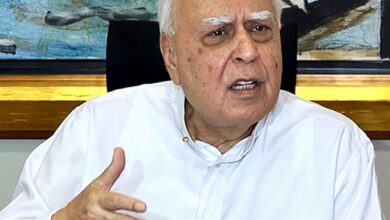Madhya Pradesh High Court asks Centre to change the age of consent for women
The judge says, "Injustice going on with adolescent boys", while requesting to decrease the age of consent.

The Gwalior Bench of the Madhya Pradesh High Court has requested the Centre on June 27 to reduce the age of consent for women to 16, stating that the present age, 18, has disturbed the fabric of society and injustice is happening with adolescent boys. This request came after the court dismissed an FIR against a man who was accused of raping a minor girl repeatedly and impregnating her in 2020.
Justice Deepak Kumar stated in his order, “Today, in most of criminal cases in which the female prosecutor is under 18 years of age, due to the anomaly described above, injustice is going on with adolescent boys. Thus, I request Government of India to think over the matter of reducing the age of prosecutrix from 18 to 16 years as earlier before amendments so that injustice should be redressed.” He also said that in today’s world where adolescents are getting exposed to social media on a daily basis, they are “getting puberty at an early age”, and entering into consensual relationships before turning adults.
These statements come after the bench quashed the FIR for rape and other offence under IPC, IT Act, and the POCSO Act. According to the allegations, the man who gave the minor victim coaching classes allegedly spiked her juice to make her unconscious and engaged in sexual activities with her. He also allegedly recorded a video to which the victim further said that the man blackmailed him into circulating the video and forced her to have intercourse with him many different times.
The counsel for the accused argued that there was a big delay of almost seven months in the filing of the FIR by the victim. He also added, that if any intercourse had occurred, it was consensual. The Court referred to a 2021 Madras High Court ruling which emphasized the widespread misuse of the POCSO Act by many families to wrongly prosecute the partners of their teenage daughters. The Court also noted that the minor had physical relations with a distant relative. Thus, considering the circumstances of the case, the Court squashed the FIR along with other proceedings.



